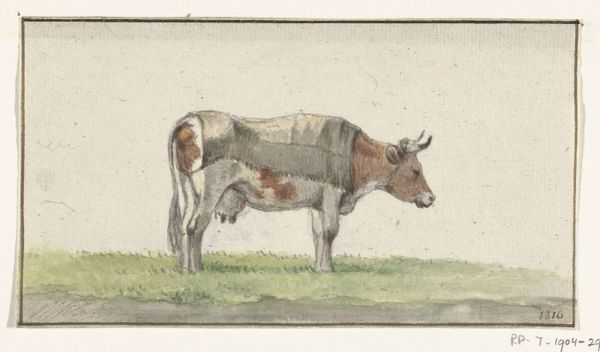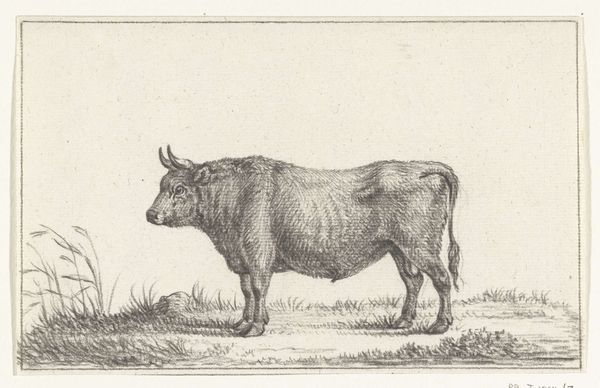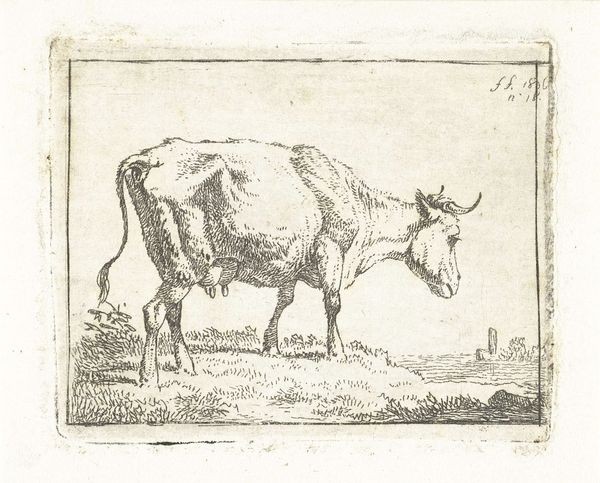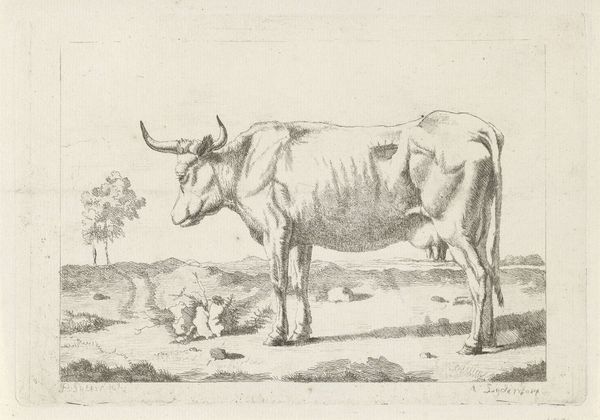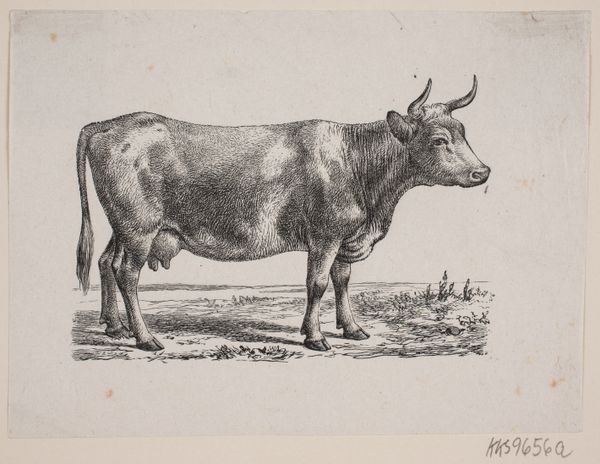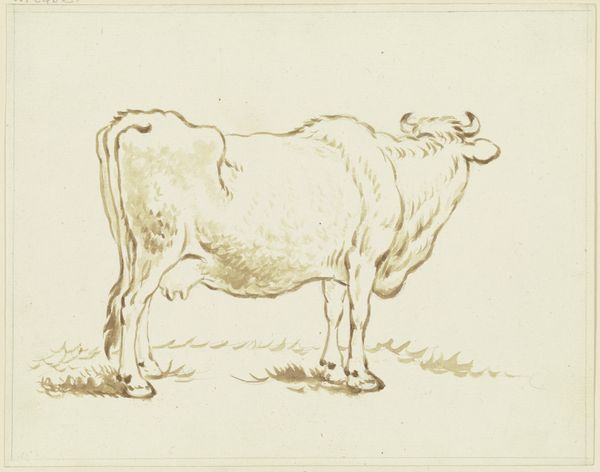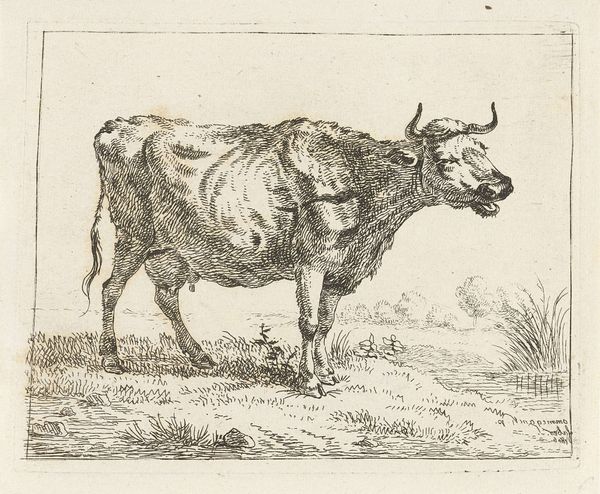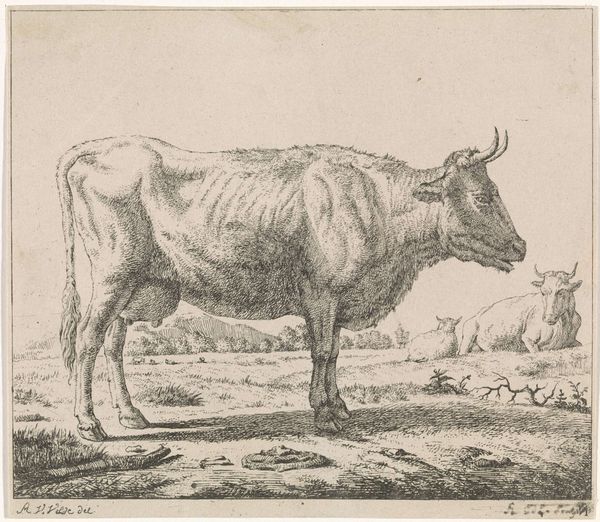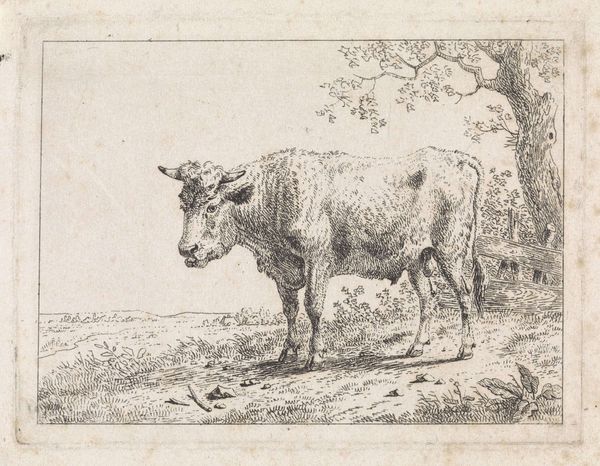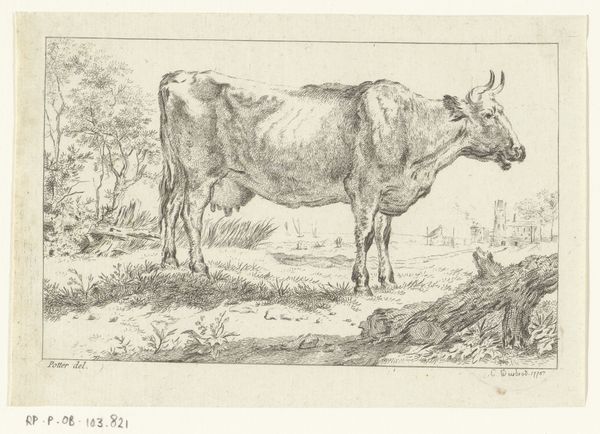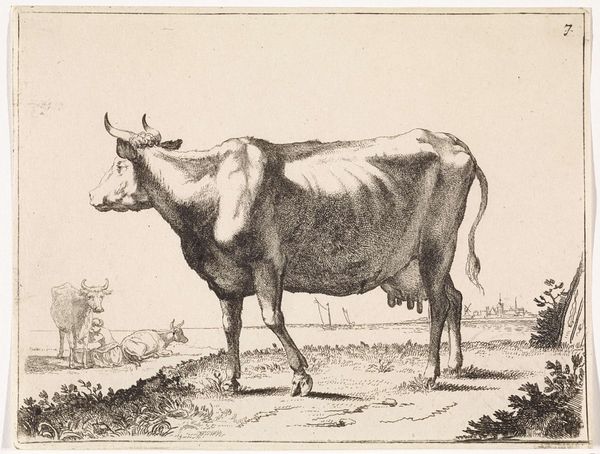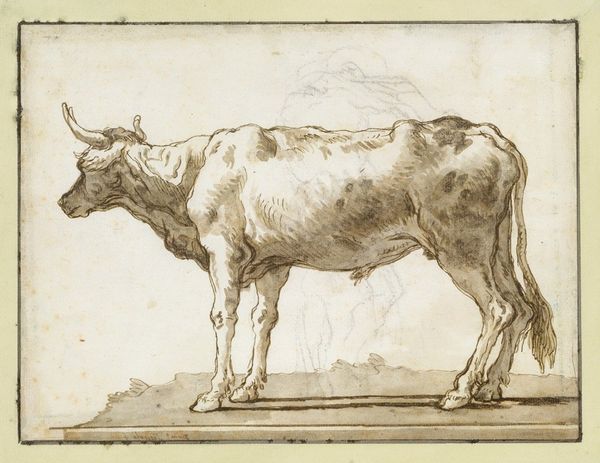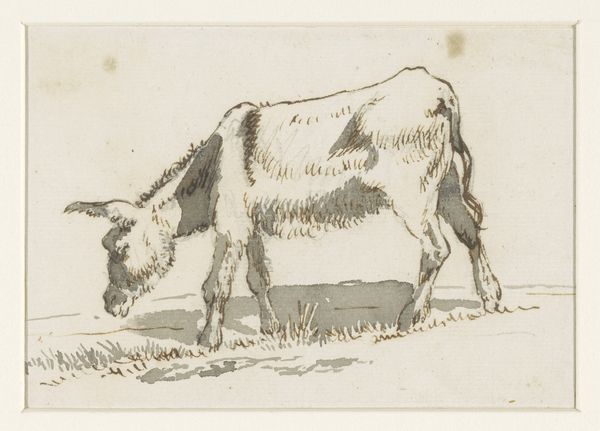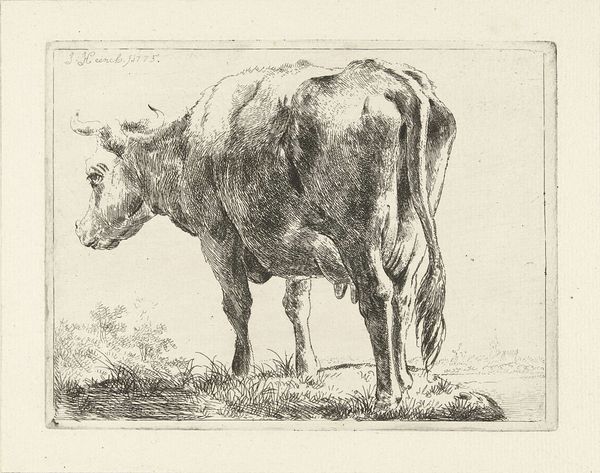
drawing, watercolor, pencil
#
drawing
#
aged paper
#
toned paper
#
light pencil work
#
quirky sketch
#
animal
#
pencil sketch
#
landscape
#
personal sketchbook
#
watercolor
#
pencil
#
sketchbook drawing
#
watercolour illustration
#
sketchbook art
#
watercolor
#
realism
Dimensions: height 78 mm, width 123 mm
Copyright: Rijks Museum: Open Domain
Editor: Here we have Jean Bernard’s "Standing Cow with Blanket, Facing Left," made around 1816 using pencil and watercolor. It’s a simple, almost quaint, image of a cow. What do you see in this piece? Curator: Immediately, I'm drawn to the cow’s blanket. It prompts me to consider the socio-economic context of the time. Was this cow particularly prized? The blanket almost humanizes the animal, reflecting shifting attitudes toward livestock in agricultural societies. We might ask ourselves what that blanket symbolizes in terms of value, care, and even control. Editor: Control? I hadn't thought about that. Curator: Think about the power dynamics inherent in agriculture. Who decides the cow needs a blanket, and why? How does this image relate to larger conversations around animal rights and welfare that were nascent even then? Is it an act of care, or perhaps one of commodification? The application of watercolor in such delicate manner also encourages a reflection of vulnerability, and highlights the status that the cow had to represent at the time. Editor: That's a fascinating point. The act of dressing the cow and memorializing it could suggest a shift towards sentimentalizing agricultural life. Does the work, being a drawing on paper and not a painting on canvas, reinforce your point about socio-economic considerations? Curator: Absolutely! Its medium suggests intimacy, accessibility. This isn’t a grand statement but a quiet observation, possibly from a personal sketchbook, that places the cow as part of someone’s immediate environment. What do you think this status means from the animal's perspective? Editor: This has certainly given me a lot to think about! I definitely see more than just a cow with a blanket now. Curator: Indeed. Art often serves as a mirror reflecting not only the subject, but the societal values surrounding it. Considering the drawing, as an object in itself, makes it easier to open this conversations.
Comments
No comments
Be the first to comment and join the conversation on the ultimate creative platform.
